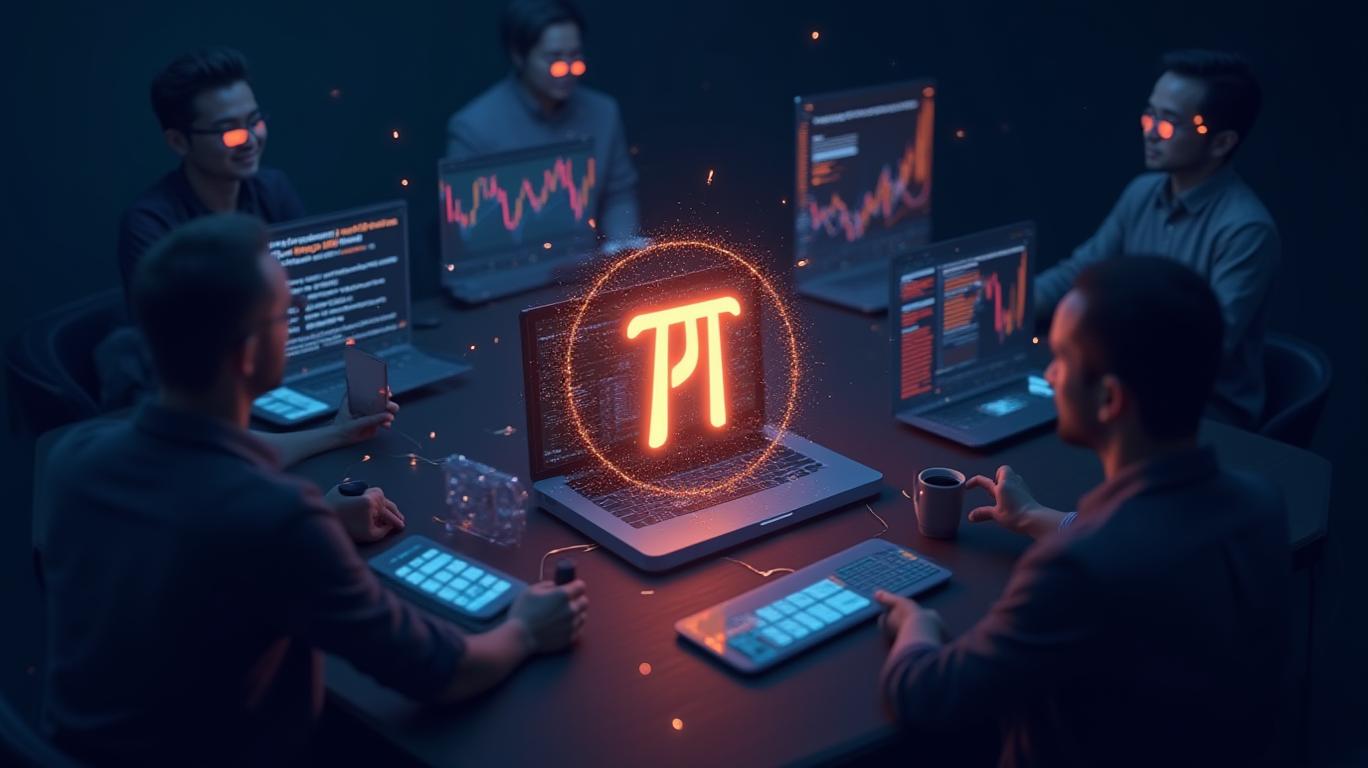Pi Network: 120x Faster Than Bitcoin, Set for Open Launch
The Pi Network, a decentralized cryptocurrency project, has been generating buzz in the crypto community, with its pioneers highlighting its speed advantage over Bitcoin. As the project prepares for its Open launch on February 20, the focus has shifted to its transaction speed, which is claimed to be 120 times faster than Bitcoin.
Dr. Picoin on X, a Pi Network pioneer, shared that the project has a block time of approximately 5 seconds, compared to Bitcoin's 10 minutes. This results in a speed advantage of around 120 times. Jatin Gupta, another Pi Network proponent, echoed these claims, noting that the project has seen up to 540,000 daily downloads, indicating growing interest.
The Pi Network's fast block speed suggests a more efficient system, with the potential for increased transactions per block post-transition on February 20. Gupta also highlighted the project's social metrics, noting that it has surged to the fourth rank in the social category on the Google Play Store, placing it in the same league as major tech giants like Facebook and Instagram.
However, not everyone is convinced by the Pi Network pioneers' claims. Critics have pointed out that while the project's 5-second block time is impressive, it still falls short of other blockchain networks that boast even faster speeds. Notable competitors include Solana, Avalanche, Algorand, and EOS, which offer block times of around 400 milliseconds, less than a second, 3.3 seconds, and 0.5 seconds, respectively.
Despite the debate surrounding its speed claims, the Pi Network remains a popular topic, with search interest hitting an all-time high. However, the project faces challenges in listing Pi Coin on major exchanges like OKX and Binance. Additionally, it has faced legal warnings that raise questions about its regulatory compliance.
As the Pi Network prepares for its Open launch, pioneers remain bullish, working to dispel fear, uncertainty, and doubt (FUD) and highlighting the project's potential for mainstream adoption. Analysts have also weighed in, defending the project against scam allegations and emphasizing its potential.

Quickly understand the history and background of various well-known coins
Latest Articles
Stay ahead of the market.
Get curated U.S. market news, insights and key dates delivered to your inbox.

Comments
No comments yet